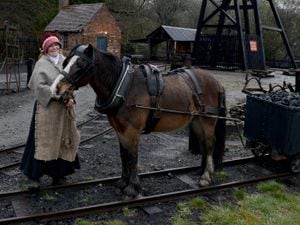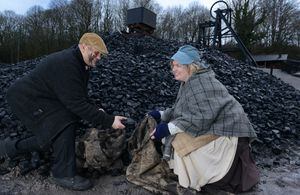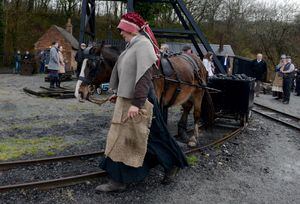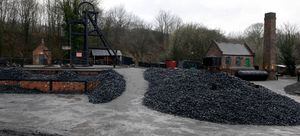Newly-restored colliery revealed at Black Country Living Museum
For centuries people toiled in the Black Country to get coal from the ground and into homes and factories.

It was a rigorous job where men and women worked long hours in dark and dirty pits.
But it was an important job which fuelled the industrial powerhouse of Great Britain.
Now a colliery has been restored at the Black Country Living Museum showing what life was like for people working 'on the surface'.

Andrew Lovett, director and chief executive of the museum, said: “This is an important part of Black Country history for us to bring to life for our visitors.
"Without coal, there would have been no steam power – the power behind the Industrial Revolution and the agent of social and economic change which helped create the world we live in today.
"We are truly grateful to our generous supporters who have made this new attraction possible.”
The revamped attraction is called the Racecourse Colliery. It has a number of features to bring the colliery to life.
A pit pony called Charlie is on hand to demonstrate how coal was transported along the colliery, on a newly restored tramway.

A pit cage has been set up showing how coal was lifted out the mine and a miner's hovel has been refurbished showing where miners used to take breaks.
The attraction also features sound and lighting effects to immerse visitors.
Costumed characters will be on hand to tell the rich stories of men, women and children whose lives revolved around collieries.
The museum's colliery was unveiled on Thursday.

A series of explosive gas and fire shows are taking place this weekend to demonstrate the dangers of mining.
Collieries are the terms given to coal mine and its structures in the United Kingdom.
One of the reasons the Black Country is thought to have earned its name is because coal seeped to the surface in the region.
Another is the heavy industries that covered the area.





